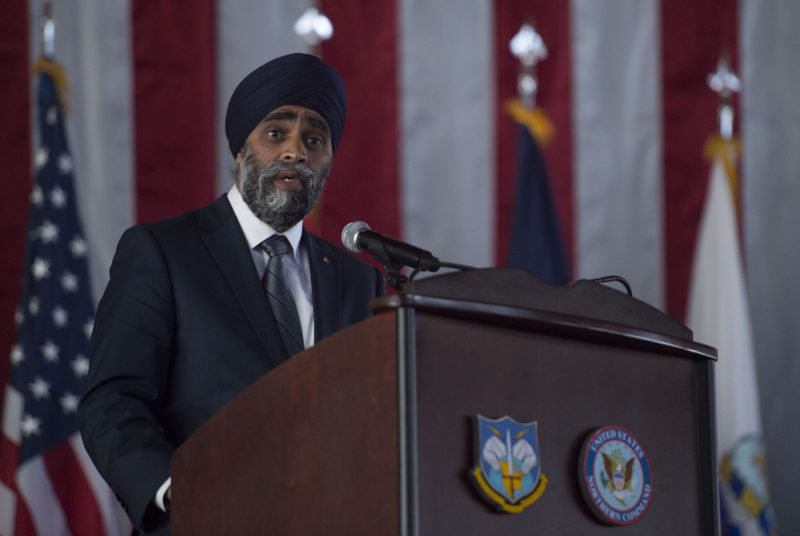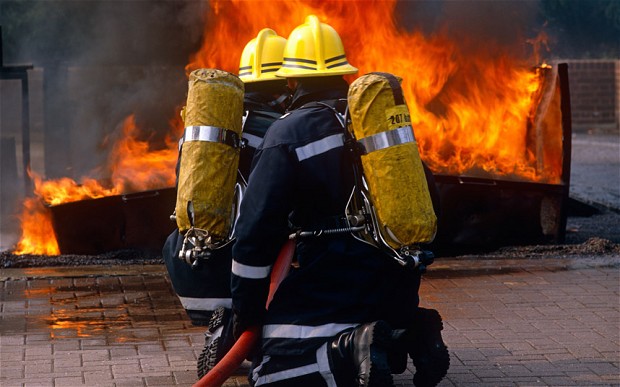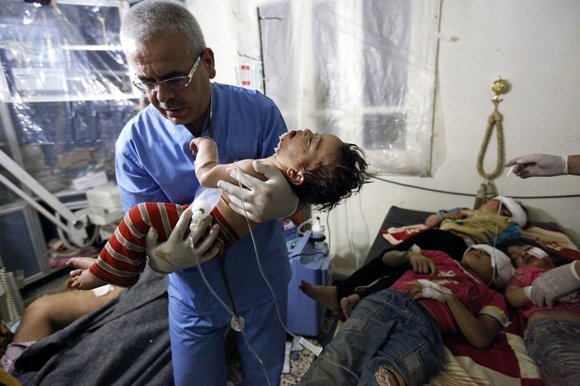After returning from a trip to Senegal and Mali in early November 2016, Defence Minister Harjit Sajjan emphasized the need for Canada to increase its role in multilateral peace and counter-insurgency operations abroad. This visit came just months after Sajjan’s fact-finding trip to the Democratic Republic of Congo, Uganda, Kenya, Tanzania, and Ethiopia, in which he assessed the countries’ security situations and heard about how a Canadian contribution can benefit peace operations.
On August 26, 2016, the Liberal government announced its revamped peacekeeping programme, which includes a commitment to spending $450 million over three years on a peace and stabilization fund. It was unclear, however, where the 600 troops and 150 police officers involved in the proposed peace operation would be sent. With Mali, which currently hosts the deadliest UN peacekeeping mission in the world, emerging as a frontrunner, it is necessary to analyze the conflict in Mali and assess the benefits and risks that such a mission would pose to Canada.
In 2012, the Malian government was overthrown and President Amadou Toumani Touré was ousted by a group of mutinous soldiers, who formed the Mouvement national de libération de l’Azawad (MNLA). The soldiers expressed their discontent with the Touré administration’s inability to adequately equip them to fight rebel groups in the country’s northern region. These rebel groups were largely made up of Tuareg tribesman as well as militant Islamist groups, which included Ansar Dine, Al-Qaeda in the Islamic Maghreb (AQIM), and the Movement for Oneness and Jihad in West Africa (MOJWA). The following months saw tensions rise between Islamist armed groups and the MNLA, with both camps having a different vision for a post-Touré Mali.
Benefitting from an influx of Libyan weapons shipments after the ouster of Colonel Muammar Gaddafi, Ansar Dine and MOJWA drove out MNLA troops from the cities of Gao, Timbuktu, and Kidal, where they implemented strict Sharia law. Islamist armed groups have since continued to grow in power, severely diminishing the security situation in the country. In 2013, as a result of advances made by Ansar Dine, AQIM, and MOJWA factions, the United Nations Multidimensional Integrated Stabilization in Mali (MINUSMA) was established and the French government, at the request of the Malian government, launched Operation Serval, its own counter-terrorism and security capacity-building mission.

Even from this brief overview of the turmoil in Mali, it is clear that there is a need to restore the country’s territorial integrity, protect its civilians, and build the capacity of its security forces. The question still remains, is it sound strategy for Canada to intervene in Mali? According to the most recent statistics, 109 peacekeepers have died in the West African country, making it the most deadly UN peacekeeping operation in the world. It must be made clear that despite being labelled a ‘peacekeeping’ mission, the conditions faced by Canadian forces in Mali would be rather warlike; they would likely face battle-trained rebels equipped with assault rifles, rockets, anti-tank mines, artillery, and shoulder-fired missiles. Canadian forces would not only require extensive battle training to endure such conditions, but also potentially moral and emotional training due to the frequent use of child soldiers in Mali. Furthermore, the state is part of the Sahel region, which is fraught with Islamist extremists, including Ansar Dine, AQIM, and MOJWA in Mali, as well as Boko Haram and ISIS in neighbouring countries. There is no doubt that our soldiers would be in harm’s way, and the possibility remains that a Canadian presence in the region could result in retaliatory attacks on the home front.

However, a Canadian mission to Mali is not without its benefits. According to Atul Khare, the Under Secretary General of the UN Department of Field Support, Canadian helicopters and troops are greatly needed to protect UN peacekeepers and civilians in Mali. With French being Mali’s official language, the presence of Canadian Francophone officers would allow for increased communication and coordination with local residents. Sending Canadian security forces to Mali may be a smart political move as well, since it would satisfy the Liberal government’s increased commitment to peacekeeping operations while potentially improving US-Canada relations. Deploying security forces to Mali would not only satisfy previous American administrations who criticized Canada for its lack of military activity, but would also likely sit well with President Trump, who has made combatting global terrorism a foremost priority.
With the memory of Afghanistan still fresh in Canadians’ minds, it is understandable that officials are still debating where to focus their peacekeeping operations. The people of Mali are suffering, and the presence of Canadian troops would help the country in its rebuilding process. Canadian troops’ involvement may also put soldiers, and possibly the Canadian populace as a whole, in harm’s way. The Canadian government faces a moral and strategic dilemma regarding this decision.
Cover Photo: Canadian Minister of National Defense Harjit Sajjan (2016), by Senior Master Sgt. Adrian Cadiz via Flickr. Listed under CC BY 2.0.
In-text Photo 1: Touareg Independence Fighters (2012), by Magharebia via Wikimedia. Listed under CC BY 2.0.
In-text Photo 2: MINUSMA in the Bastille Day Military Parade (2013), by Marie-Lan Nguyen via Wikimedia. Listed under CC BY 2.5.
Disclaimer: Any views or opinions expressed in articles are solely those of the authors and do not necessarily represent the views of the NATO Association of Canada.




